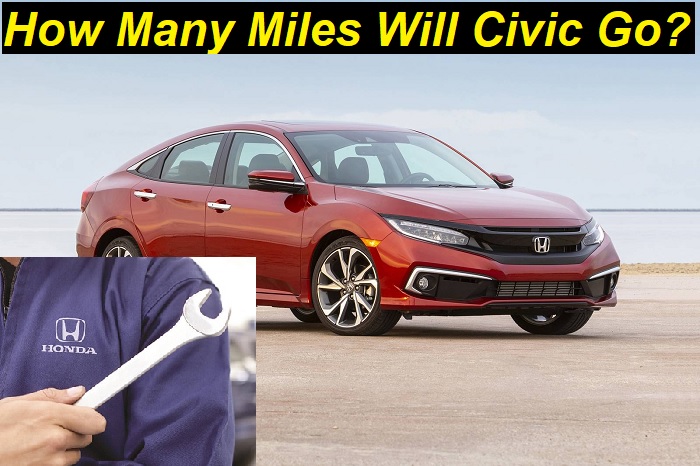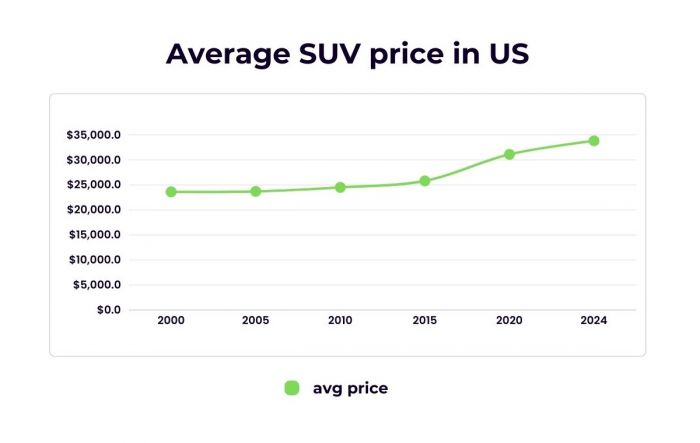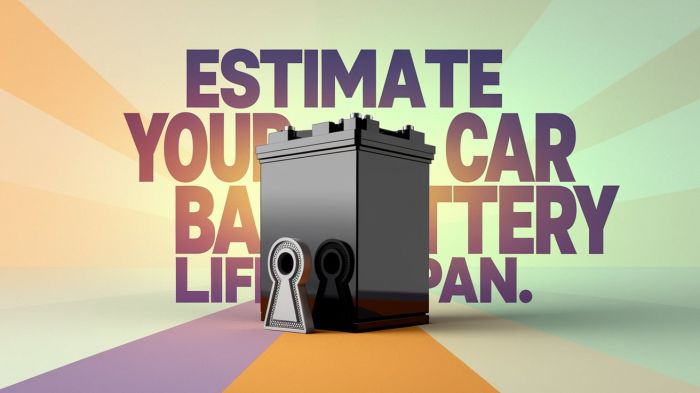The longevity of a vehicle depends much on whether this vehicle has an optimal engine and whether the car is optimally protected from all kinds of damages or not. And in this case, Honda is not a bad brand at all. Most Honda cars are very durable because they have pretty good engines, wonderful transmissions, great body protection from rust issues, and so on.
Today, we'll be speaking about a certain model - it's Honda Civic. We wouldn't say that this car is the best one in the lineup of the Japanese brand, but it's still good in terms of price and what you get for your money. The Civic has always been one of the most popular Honda models because it's relatively affordable and still good in all terms.

We'll be talking about the following:
- Which year of the Honda Civic is the best in terms of longevity?
- How many miles will the new Honda Civic go?
- What's the high mileage for a used Honda Civic?
- What are the main problems with Honda Civic that can occur?
Let's get started!
What year of the Honda Civic is considered to be the most durable?
You may know that currently the eleventh generation of the Civic is being sold in the US and in the whole world. We will not talk about all eleven generations because it simply doesn't make sense. But we should talk about the last generations that are still seen on the roads and can be bought as used or new cars.
And here are some important things we know about the recent generations:
- Eighth generation (2005-2011). These vehicles are still popular on the market. They started the new era of Honda and they are considered to be the most durable in the lineup. All engines were quite simple, but the 1.3-liter hybrid powerplant; all transmissions were very durable, even the CVT. On average, this generation of the Civic could last at least 250 000 miles or even more. Some cars have hit the 300 000-mile mark and are still in use.
- Ninth generation (2011-2015). Honda basically added another engine (2.4) to make the range even more appealing to clients. But technically, the Civic didn't change much in 2011. So, in our opinion, this is the best generation of the Civic to buy if you want a used car that will be very durable. These Civics will go around 250 000 miles easily and they have a much better design than the eighth generation. Also, they are younger which is really important.
- Tenth generation (2015-2021). This is a cool-looking car, but as you may know, when a manufacturer starts investing in the design, it loses the quality. This rule worked properly with the Civic and the car became less durable. The tenth generation has more problems. This car is expected to last around 200 000 miles. Which is still not bad, but it's worse than the previous generations. We'll talk about the problems later.
- Eleventh generation (2021-now). This is the current generation and the most beautiful Civic that you will want to buy new, of course. But this car has a lot of problems and strange technical decisions. Out of 6 engines, only one can be considered durable. Also, the transmissions are not the best ones. We guess that the Civic of the latest generation will last approximately 150 000 miles.
It's not hard to see that the lifespan of the Civic cars deteriorates over time. It means that vehicles start using less durable technologies. And we can say that it's not only true for a Civic. It's true for all modern cars, unfortunately. If you want a really durable and problem-free Civic, look at the ninth generation with low mileage.
But given an average American drives a car for 15 000 miles a year, the new Civic will be quite enough for 10 years of driving. It's still not bad. We should also remind you that our guess of the lifespan of any car is based on serious technical issues. Your new Civic can go 250 000 miles if you are lucky and you service your car perfectly.
What can happen to your Honda Civic?
Well, we won't talk a lot about the eighth and ninth generations of the Civic. Those cars are great, but they are old. We'll be talking about the tenth and eleventh generations that are up-to-date and very wanted on the market. And now we'll try to find the most common problems that can happen with your Civic and reduce its longevity.
Electric system issues
Unfortunately, the latest generations of the Honda Civic have had a lot of problems with wiring and ECU. Owners keep coming to dealers and complaining. It's not only about some connectors and wiring that are easy to repair. It's almost always about the settings of the ECU which are changed somehow and the car starts acting like crazy.
For example, one complaint was that the car started opening all four windows once put in parking. How could that happen? We are sure that these things can only happen with poorly prepared cars when the manufacturer spares money and doesn't check the work that is done by workers.
1.5-liter engine problems
You may know that the new Civics are powered mainly by the 1.5-liter turbocharged engine. This is a good unit until you start repairing it. The displacement isn't enough to hold that much power, so the piston rings fail very quickly. The head keeps overheating and the head gasket may fail even within the warranty period.
The 2-liter engine is much better in terms of longevity. But it also has some problems that reduce the potential mileage.
CVT transmission issues
We haven't heard about the problems for the 2021 model, but the tenth generation of the Civic had the same CVT transmission. And it was problematic. We would say that after 100 000 miles it starts failing and causing problems. Repairing such transmission is virtually impossible, so you will have to replace it which costs a fortune.
CVT transmissions are very good in terms of driving emotions and fuel economy. But they are awful when it comes to longevity. These transmissions are not durable and they will not contribute to the extremely high mileage of your car.
Rough suspension
If you love rough riding, the Civic will be your choice. But you should know that the modern Civic is not about racing and sport. This car is tender and it will not be glad if you start pressing that acceleration pedal too hard. You should know that the Civic is going to break very fast if you try to rev up the engine up to the red line.
So, the rough ride - why does the Civic actually need it? It's not comfortable to drive on average roads at all. And 99% of your time in the Civic you'll be driving on average roads. Should we remind you that the Civic's suspension is extremely expensive to repair?
What's the high mileage for a used Honda Civic?
Here we should distinguish between the ninth and tenth generations of the Civic. If you buy the ninth generation, you can get a car with over 100 000 miles on the clock and still be happy because it has another 100 000 miles left (at least). But if you are looking at the tenth generation of the model, you should be very careful with the mileage. Make sure you are buying a car that has no more than 60 000 miles on the clock.
Here are some other things to consider:
- make sure you have checked the accident records and history, it's extremely important for longevity;
- service records are important too - if your Civic wasn't serviced properly, it will lose half of its lifespan;
- pay attention to the visual condition of the car - if it looks bad, it probably wasn't maintained properly;
- always show the car you want to buy to a specialist - this will save your time and money in the future.
Buying a used Civic is not that simple. You should understand which parts of this car can fail and reduce the lifespan. Also, you should be ready to check the maintenance history and accident records. These are the two factors that decide how many miles your car will go in the future. And you should pay attention to them when you are looking for a good used Civic.
Final words
Now you know that an older Honda Civic can actually go over 250 000 miles. But the two last generations are not that durable. They can only go about 150 000 miles because of the problems with their engines and transmissions.
It doesn't mean that every new Civic will be ready to go to a scrapyard once it hits the 150 000-mile mark. This is just an average estimate of its lifespan. Some Civics will go over 200 000 miles while some of them will fail at 100 000 miles. And it depends not only on a car but on you - how you maintain and repair your vehicle.
About the authors
The CarAraC research team is composed of seasoned auto mechanics and automotive industry professionals, including individuals with advanced degrees and certifications in their field. Our team members boast prestigious credentials, reflecting their extensive knowledge and skills. These qualifications include: IMI: Institute of the Motor Industry, ASE-Certified Master Automobile Technicians; Coventry University, Graduate of MA in Automotive Journalism; Politecnico di Torino, Italy, MS Automotive Engineering; Ss. Cyril and Methodius University in Skopje, Mechanical University in Skopje; TOC Automotive College; DHA Suffa University, Department of Mechanical Engineering






Add comment